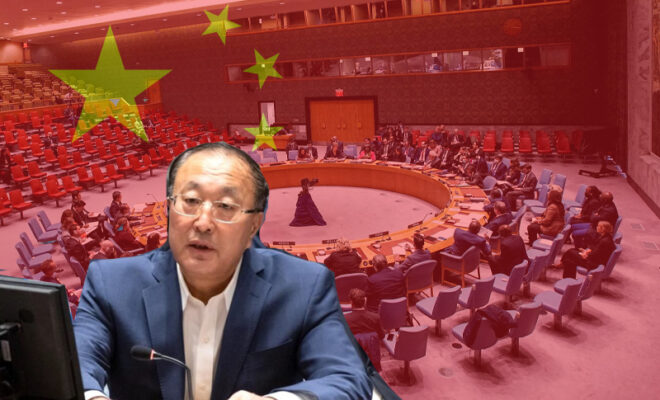China Opposes UNSC Meeting on North Korea Rights

According to a representative of China’s U.N. mission, China opposes the upcoming Security Council (UNSC) meeting to discuss North Korea’s violations of human rights.
The declaration follows a request for a UNSC meeting on DPRK human rights made last week by the United States, Japan, and Albania. The meeting, which is set for this Thursday, will be the UNSC’s first to address the problem in five years.
The spokesperson for the Chinese mission stated that a Council meeting on human rights in the DPRK is unconstitutional, politicizes the subject, and only serves to exacerbate tensions. China will oppose it because she sees no benefit in the Council holding such a meeting.
According to the United States mission in North Korea, briefings on the meeting will be given by the United Nations High Commissioner for Human Rights Volker Turk, and the United Nations Special Envoy on DPRK Human Rights Elizabeth Salmon. Both of these individuals will represent the United Nations. The United Nations Security Council will also hear from a “briefer from civil society.”
Since November 2017, when China voiced its opposition, the United Nations Security Council has not held any open discussions on the DPRK’s violations of human rights, although it did so from 2014 to 2017.
Beijing’s protest, however, won’t prevent this week’s discussion from taking place, according to Reuters, which quoted an unnamed U.S. official who said Washington is confident the council will obtain the necessary nine votes to proceed.
Senior lecturer at the National University of Malaysia Chiew-Ping Hoo said to News that China sees human rights as a “domestic issue” as opposed to a matter of international relations.
China’s opposition to the UNSC meeting, according to her, is “to prevent the U.S. from further politicizing the human rights issues of North Korea,” she said.
Legal expert Ethan Hee-seok Shin of the Seoul-based Transitional Justice Working Group, who has urged the UNSC to pick up its debate on North Korea’s human rights, told News that the opposition from China was to be expected.
The purpose of the exercise, he said, was to hold a public briefing and discussion at the UNSC to keep the issue of North Korean human rights on the international agenda. “China or Russia or any other country’s opposition does not really matter,” he said.
At the UNSC meeting on Thursday, if a resolution on DPRK human rights is proposed, China and Russia will undoubtedly use their veto power to block it, according to Shin.
But he pointed out that issues that the Security Council has vetoed can be discussed in the U.N. General Assembly.
After China and Russia vetoed a U.S.-led resolution to tighten the DPRK sanctions regime, the General Assembly convened in June 2022 to discuss a failed Security Council vote for the first time.
The General Assembly had to convene within two weeks of a permanent member of the UNSC exercising their veto, in accordance with a rule that was introduced last year.
Shin said, “Perhaps the same-minded states could bring a referral resolution to the International Criminal Court to the UNSC, and if it gets vetoed as expected, the General Assembly could hold a public discussion to put more pressure on North Korea.”
Human rights organizations and the U.N. have expressed concern that China may soon repatriate DPRK citizens held in its custody in light of reports that North Korea will reopen its border.
ALSO READ: China’s New Laser Weapons Pose Major Threat to US
Three Chinese detention facilities suspected or known to house North Korean escapees underwent extensive renovations during the pandemic, according to an investigation. This raises the possibility that Beijing is boosting its ability to hold defectors before their forcible return to their home country.
Over 1,500 North Koreans are believed to be imprisoned in Chinese prisons, according to an estimate made by the U.N. special rapporteur on North Korean human rights last year. They will probably be imprisoned, tortured, or executed if they are sent back to North Korea, according to experts.



